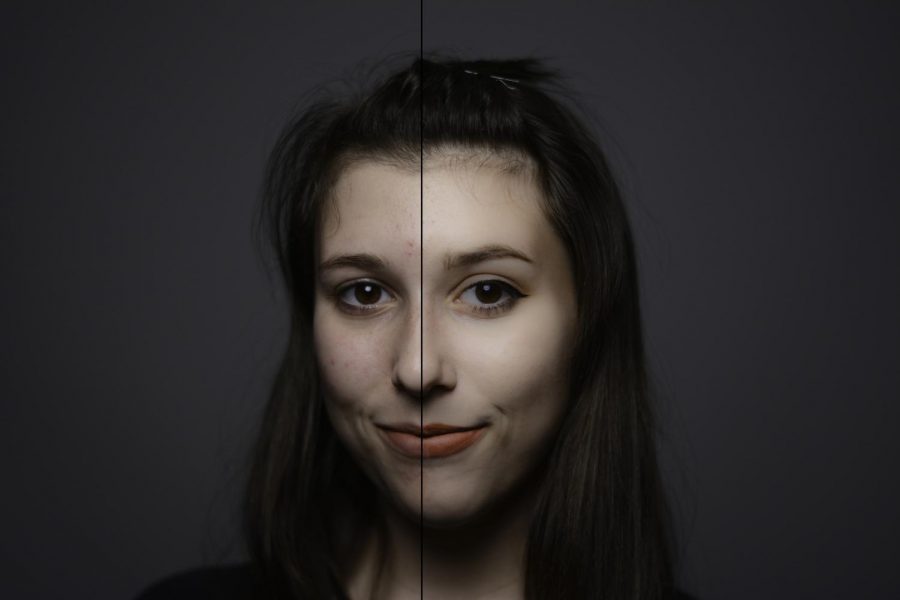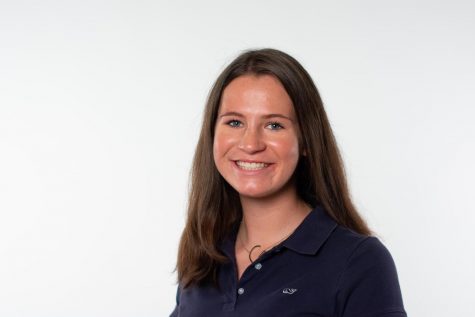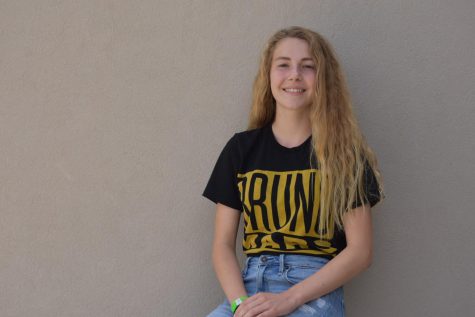We live in a selfie generation where everyone wants to look good in pictures. According to Nelson Granados at Forbes, Generation Z—people born between 1995 and 2014—spend approximately 10 hours a day online.
We always see pictures of ourselves on various social media platforms, whether we are pictured on Instagram or sending pictures of our faces on Snapchat. Whatever the circumstance is, people want to feel their best. According to writer Jeff Fromm, that’s why the newest generations—Millennials and Generation Z—make up the majority of beauty sales in the 13-billion-dollar industry. Even in 2010, before major social media platforms like Instagram and Snapchat became popular, the President and CEO of Estee Lauder, Fabrizio Freda, recognized makeup’s importance in our changing society.
“Younger generations are defining the culture with images of self-expression,” Freda told Forbes. “They take more pictures in a day on average than their parents took in a year. Sixty-five percent of teens rely on social media to discover and select beauty products.”
Today, about two billion people use social media. Newer generations want to look their best, so an easy solution is to turn to makeup.
“Women are spending more [on beauty products], 13 percent more on foundation, 18 percent more on concealer,” Freda said. 35 percent of women use more than five makeup products every day and 80 percent use three skin care products every day. And six mascaras are sold per minute in the U.S.”
In recent years, the demand for makeup has increased and only continues to grow. The amount of products teens buy in cosmetics stores like Sephora and Ulta has increased. Since makeup can be expensive at those cosmetics stores, buying a few products can mean spending hundreds of dollars.
“I probably use around 11 products for a full face,” junior Lena Kuhlman said. “I usually spend around $50 or $60 depending on how many products I buy. A lot of the products in those stores are expensive so I don’t buy a lot at once.”
With the growing trend in makeup, many people have taken interest in makeup as more than just a way to perfect their faces: they see it as an art form. Many people who are interested in makeup go to websites and apps like Pinterest, Instagram, Sephora and most notably, YouTube for tips and tutorials. On YouTube, some people have become celebrities from their makeup channels, such as Patrick Starr, Jaclyn Hill and Olivia Jade. These YouTubers instruct viewers about different products and how to apply makeup. Since these people are so successful and promote so many products just by using them, companies sponsor them to use and help sell their products.
Mastering the art of makeup is like anything; the more practice, the better someone can become. With different products, many looks can be created. According to research from Mintel, time spent during the beauty routine, skill level and willingness to experiment with products is higher for millennials than any other generation.
“I watch YouTube videos a lot, and in 8th grade I practiced a lot with trial and error,” Kuhlman said.
While some see makeup as art, others wear it for confidence; however the more often it is worn, the more society expects it. Once someone wears makeup often, people become accustomed to their face with makeup. When people take their makeup off or decide not to wear makeup, people think their face looks dull and tired. Society is drawn to beauty, and makeup helps enhance and sometimes create someone’s features. Skills such as contouring are used to sculpt and reshape faces.
Contouring is a technique popularized among other beauty tricks by the Kardashians, which creates the illusion of define and reshaping your face. The Kardashians set unrealistic beauty standards because of all the products and treatments they use. Photoshop also plays the role of setting unrealistic standards of beauty because it hides and reduces imperfections such as blemishes and wrinkles.
Since conventional standards are hard to reach, so companies such as CVS are trying to bring the beauty industry back to reality. CVS recently launched a campaign to stop using Photoshop on all images that promote beauty products in their stores. They want girls and women of all ages to feel comfortable in their skin, and by seeing the models in photos and without Photoshop, it could lead them to feel more confident with their imperfections. According to CNN Money, the company will add a “CVS Beauty Mark” label on the pictures that have not been retouched hoping that other companies will follow their idea.
As a generation that is constantly online and making sure that we always look good, the idea of natural beauty has disappeared. However, with companies such as CVS, the industry will begin to emphasize natural beauty more instead of covering up.
“I think makeup can be a creative outlet for some people or it can give people confidence,” Kuhlman said. “In the recent years, more people are making tutorials and are making a career out of something they love. I think that is awesome because it allows people to express themselves.”















